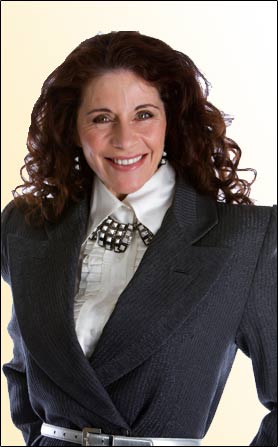I work with several very large Fortune 500 companies that are going through major cultural changes. In some cases, this involves a shift in how people need to lead, to accommodate the younger generations. Sometimes the shift involves adapting to new technology or a new CEO’s vision. In other cases, such as with a Kraft or Tyco, it’s a huge split, and the companies are reforming themselves, people are moving to new jobs, and some are being let go.
Along the way, people are being asked to adapt. For some, this can be pretty challenging. In my book WordFood, this kind of person is called a Meat & Potatoes type, who is attached to a way of being and isn’t willing to make the shift. They’re often either afraid, or they can just be stuck in the past, or just plain stubborn. For those of us who work with such people, it can be frustrating because we need their input and skills to be focused on the new tasks at hand. When they are complaining or resisting, the rest of the world is moving forward. It can seem they are roadblocks, and causing problems with the rest of the team as well.
Many times the problem is that they feel that they are no longer useful in the company’s new iteration. They may feel left behind, forgotten. It helps to coach them on how their skills and knowledge have a viable place in the new “world order.” Help them see how their experience is useful, but perhaps in a slightly new way. For older workers in particular, you need their coaching, mentoring and expertise with younger workers. So often, it’s the feeling of not being needed any more that is driving the negative behavior.
For others, they may be actively undermining the company’s new direction and need intervention. If you have a team member who is constantly causing an uproar you need to address this head-on. It’s challenging enough that people are going through a transition- they don’t need a rabble rouser. Find out what is really going on. There’s usually a very good reason for someone’s anger or resistance. Be compassionate enough to recognize that change is rough on everyone, but when someone is taking out their issues on the team, it’s unacceptable. You may need to help them get connected with a new network of employees that supports them in their new role. They may feel isolated and lonely. A major change causes many of us to go into a cave and stop communicating, so a key strategy is to make sure your people are collaborating and connected.
Above all, create a safe environment for them to vent. They need to express their fears and their losses. Once they’ve had a chance to do this, often they can begin the healing process and move on. If not, then another level of intervention is necessary. Find roles that engage them to coach other employees, teach new skills. Keep them active and productive. The more busy they are and the more positive WordFood they get from you that they are making a difference, the less they can complain.
Finally, during any major change, educate yourself and your people about the transition process. A great source is the series of short books by Dr. William Bridges on organizational transition. They can make sense of what you are seeing on your teams, when you come face to face with a Meat & Potatoes Diet type.

